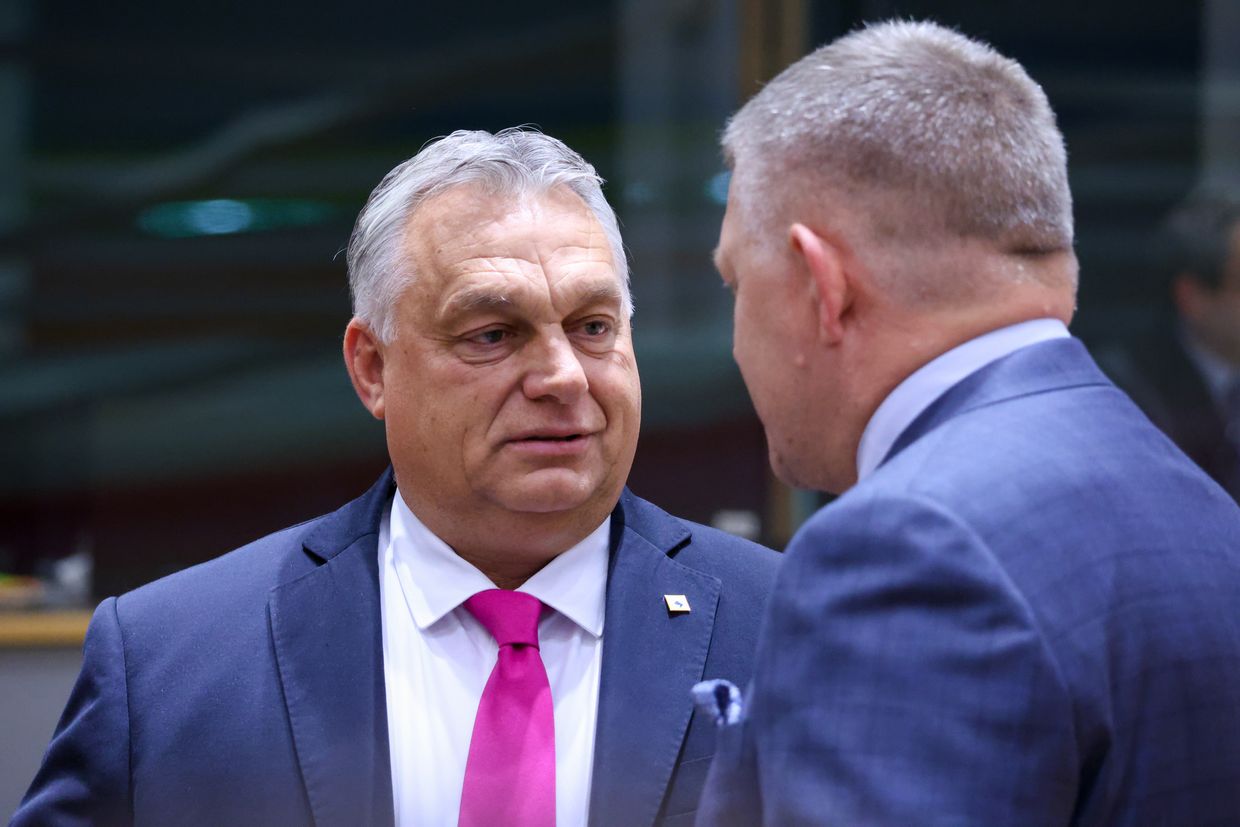Bulgaria has had to walk a fine line, trying to covertly support Ukraine without provoking Russia.
The Balkan state has been historically influenced by Moscow. Opinions on Ukraine are split among its 6.7 million people, many of whom buy into Kremlin propaganda.
The new coalition government elected in June after two years of political deadlock is now shifting Bulgaria towards Kyiv and the West. Sofia has been quietly shipping ammunition to Kyiv since 2022, but the most recent pledge of 100 armored vehicles was the first package to be announced publicly.
Supporting Ukraine is in Bulgaria's strategic interest for several reasons, Bulgarian Defense Minister Todor Tagarev said in an interview with the Kyiv Independent. Russia "broke all international norms" and is "destroying the international security architecture."
"First, this is a moral obligation to help the victim of aggression," Tagarev said. "But it is also in our strategic interest that Ukraine withholds the Russian aggression and manages to recover its sovereignty and territorial integrity. This is key for the stability in Europe – particularly for Eastern Europe in the Black Sea region."
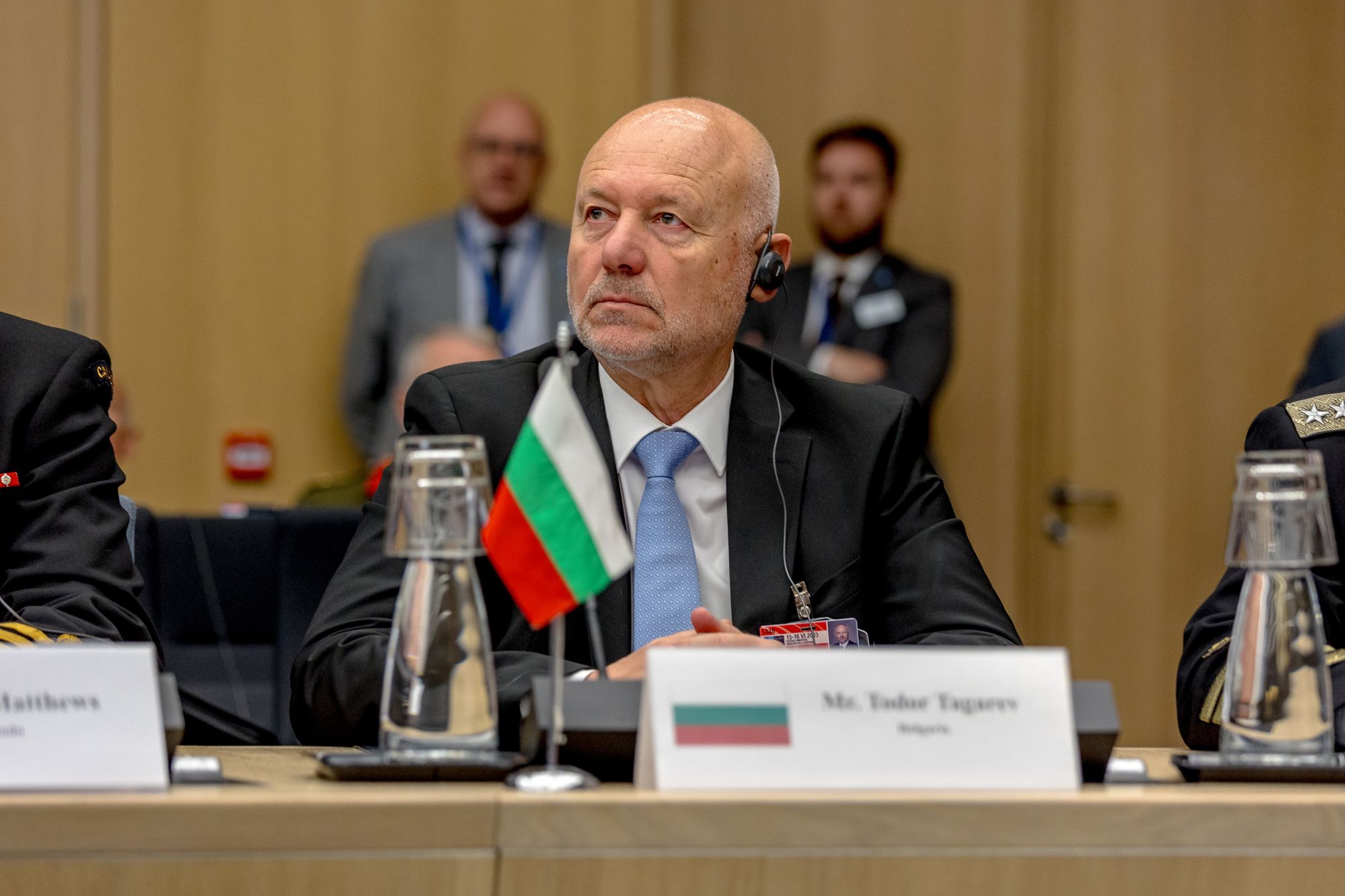
But it will be tough to disentangle from Russia, whose propaganda is influential in Bulgarian politics and among the public. The sitting president, Rumen Radev, is pro-Russian.
Tagarev said there are politicians who oppose giving weapons to Ukraine, claiming that they're trying to achieve peace faster, even though this argument makes no sense.
Bulgaria also heavily depends on Russian oil.
Some Bulgarians still see Russia as the power that liberated their country from the Ottoman Empire in the 1800s. Kremlin narratives are "accepted quite favorably by a significant portion of the population," but this is changing.
A growing number of Bulgarians support Ukraine, he said. Russia's war in Ukraine appeared to be the wake-up call that his country needed.
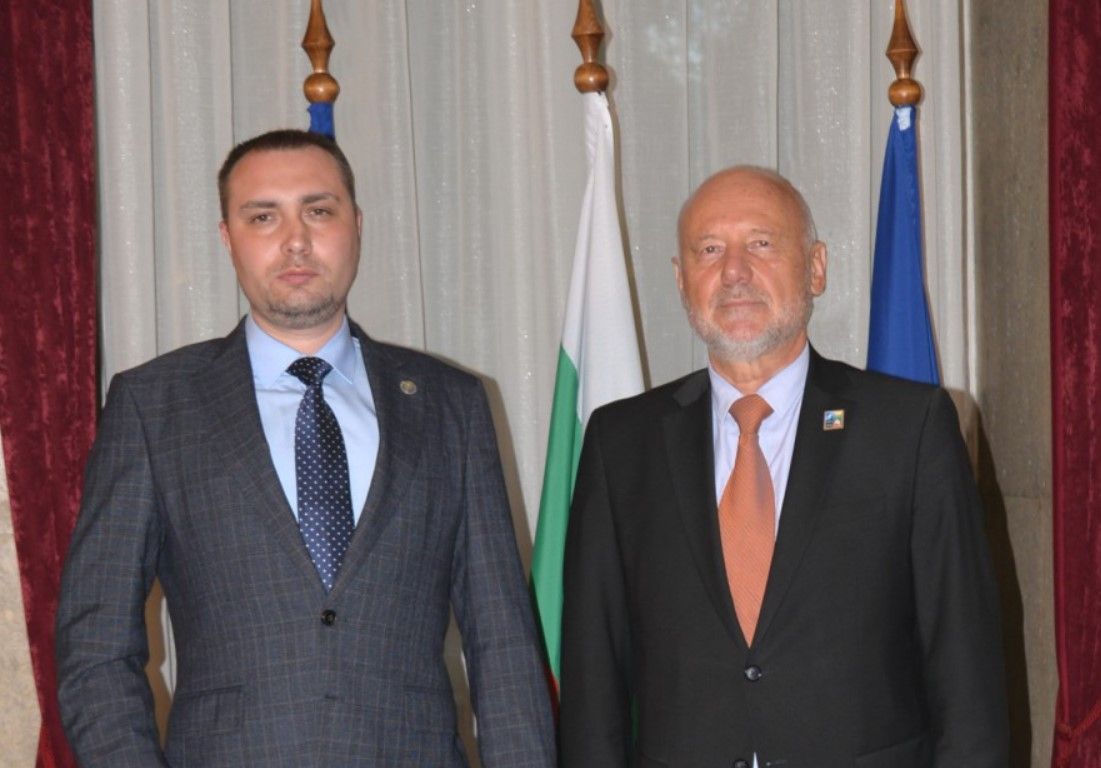
Key neighbor
Bulgaria is a good friend to have, with its abundant Soviet weapon stockpiles and large defense industry.
In his first public visit to Bulgaria in July, President Volodymyr Zelensky scolded Radev for his opposition to arming Ukraine for what he described as a "conflict."
Radev struck back in July, telling journalists that Kyiv "insists on waging war" while "Europe pays for everything."
The Ukrainian Embassy in Sofia pounced on the comment, calling Radev out for repeating Russian propaganda. Bulgarian Prime Minister Nikolai Denkov also rebuked it, saying it doesn't reflect the position of the EU and NATO – Bulgaria is a member of both.
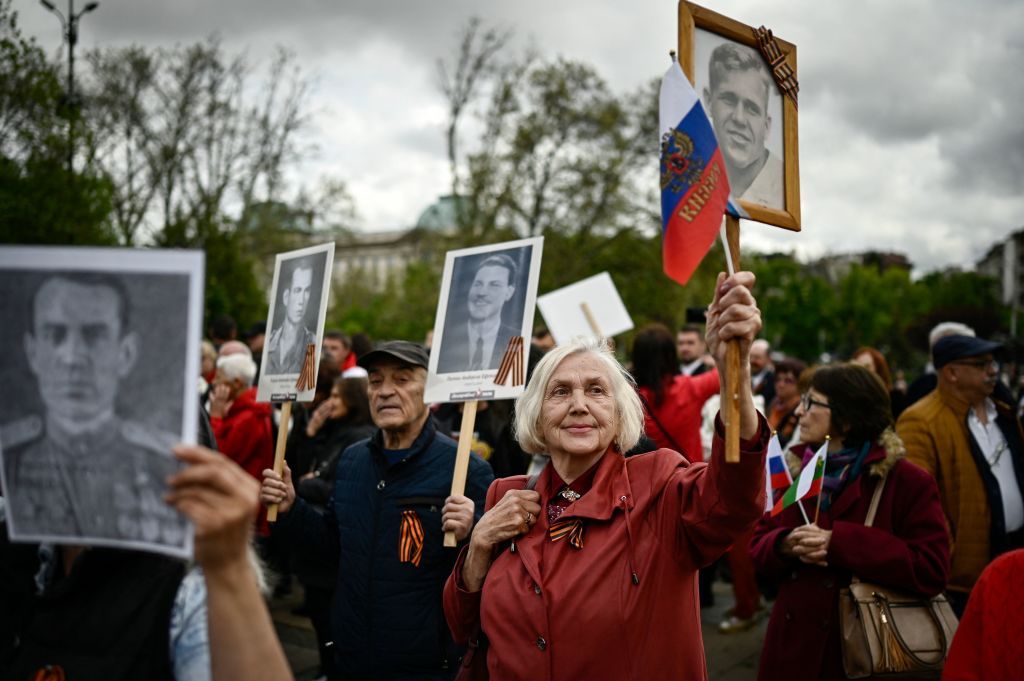
Tagarev said the president's remarks won't affect support from Bulgaria, which is a parliamentary republic. That means the government is in charge of defense, security, and foreign policy, not the president.
"That's all in our hands – the cabinet, and now the cabinet differs significantly from the president's position," Tagarev said, adding that the government does "not really" discuss with President Radev the military aid it ships to Ukraine.
Getting Bulgaria's aid is important, especially now. American support is imperiled by a deadlock in the House, and pro-Russian prime ministers of Slovakia and Hungary veto EU support for Ukraine.
Danger in the Black Sea
The Black Sea has always been a key stage of Moscow's imperial aggression.
From contaminating the sea with hundreds of mines at the beginning of the all-out war to conducting regular and unpredictable naval exercises, Russia has posed a considerable threat to Ukraine's Black Sea neighbors.
Bulgaria now faces two concerns about the Black Sea – Russia's ongoing firing drills that threaten the Balkan state's territorial integrity and the floating mines.
Ever since exiting the Black Sea Grain Initiative deal in July, Russia has used naval exercises to block Ukrainian exports of grain. With Russia's ongoing training nearby, part of Bulgaria's economic zone in the Black Sea remains partially blockaded.
"So it's one thing that it is practically blocking traffic because it communicates, 'it's dangerous, we do live fire here, so don't cross,'" Tagarev said.
"That's an established practice if it goes for a few days, maximum. But Russia has been closing that area of the Black Sea for now, really three months already, which is obviously unacceptable."
In August, a Russian warship fired warning shots at a cargo ship in the southwestern part of the Black Sea, past Ukraine.
Bulgaria has said it was discussing with NATO allies about Russia's continued partial blockade of its economic zone but has not issued a solution yet. Despite the provocation, Tagarev said it's still "not a direct threat to the territory or for aggression against a member of the NATO alliance, but there are a variety of risks."
"All these are risks that may bring casualties, and we need to deal with that – these are significant risks," Tagarev said. "So we are not so worried that Russia will dare to attack a NATO ally. But we are worried that some of those risks may materialize in either material damage or casualties."
The Turkish Defense Ministry in October announced a trilateral cooperation with Bulgaria and Romania to deal with the mines but did not elaborate in detail.
Tagarev said the goal is to clear mines "on a systematic, more rigorous basis within the joining forces of the three countries." This is unlikely to affect Ukraine's waters.
"We want to make the navigation safer, but we do not want to give a reason for escalation of the conflict in the Black Sea," Tagarev said, adding that it would still be beneficial for Ukraine's export perspective.
After Russia pulled out of the grain corridor, Kyiv is still exporting – though in much lower volumes.
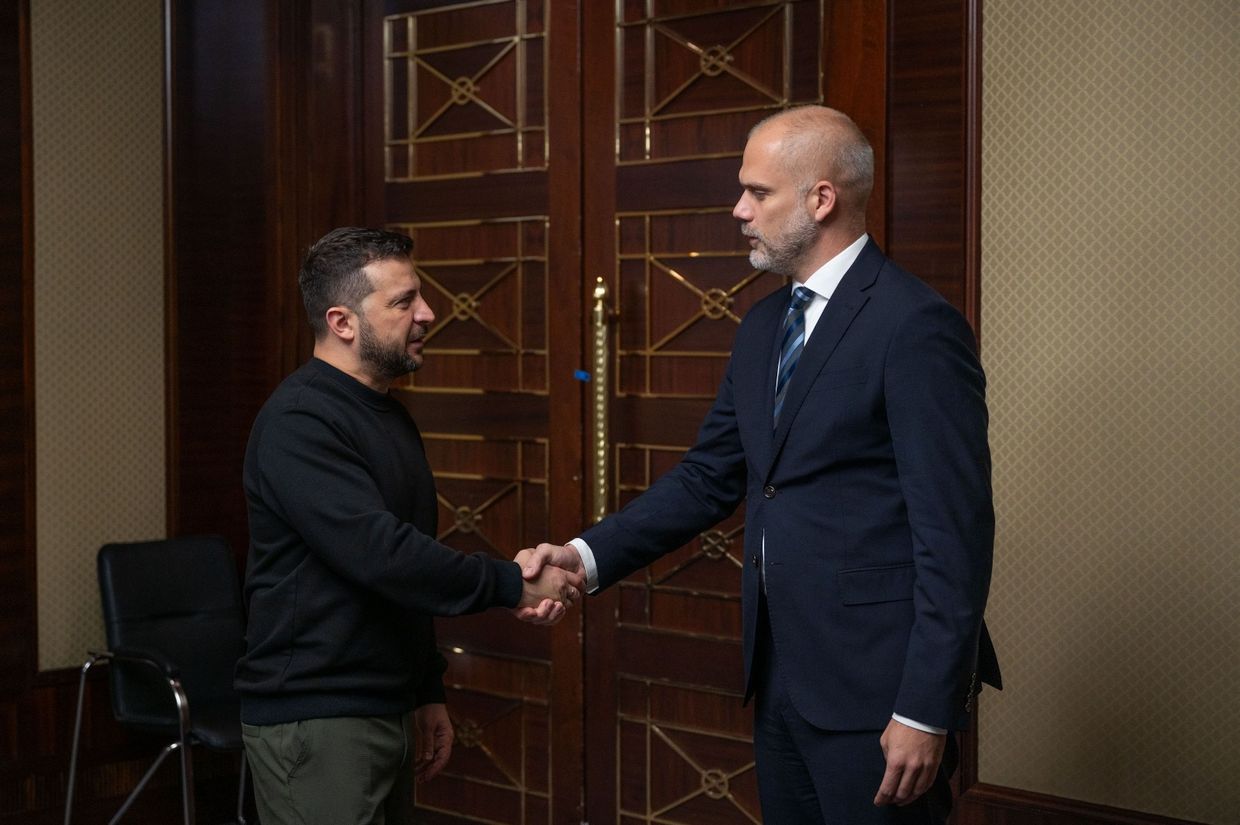
Modernizing the army
Tagarev returned to his defense minister office after 10 years to find his neighbor engulfed in war and the Black Sea region in peril.
"It's much more challenging, of course," said Tagarev, who last had the job for two months as part of then Prime Minister Marin Raykov's caretaker government in 2013.
One of his key priorities is modernizing the army. The country had had five elections in two years, meaning there is a large backlog of work to be done.
Pro-Russian disinformation is also hitting Bulgaria hard, with Tagarev recently saying that it "seriously affects the army's ability to fight."
As the poorest country in the EU, gathering sufficient funding to modernize its armed forces to NATO standards has been difficult. The country's inventory is pretty close to what it had in 1980, according to Dutch open-source defense analyst site Oryx. Political instability made it worse.
"Now the budget is being increased, we are getting more money, we need more armament, we need people, training, infrastructure and all that," Tagarev said, adding that there are now more opportunities and demand for a speedy modernization of Bulgaria's armed forces.
When asked about Bulgaria's plans for how it plans to supply its Soviet-era weapons to Ukraine, the defense minister said, "We are doing what's possible," mainly supplying from its own defense industry — traditionally specialized in small arms, light weapons, and ammunition.
"As government policy, we provide opportunities for companies to sell, and it's up to the companies to sign contracts, find ways to deliver their products to Ukraine," the minister said, adding that most defense companies in Bulgaria are privately-owned.
Tagarev said that Bulgaria's industrial production and exports doubled or tripled last year "for a billion or more euros." He hinted that "the assumption is that, in large part, that is due to the export of ammunition and material from Bulgarian companies."
According to a Guardian report citing Bulgarian officials, Sofia supplied 30% of Ukraine's Soviet ammo needs last spring after Foreign Minister Dmytro Kuleba visited in secret.
"The defense industry is working 24/7, and that's the most important support that Ukraine gets," Tagarev said.
